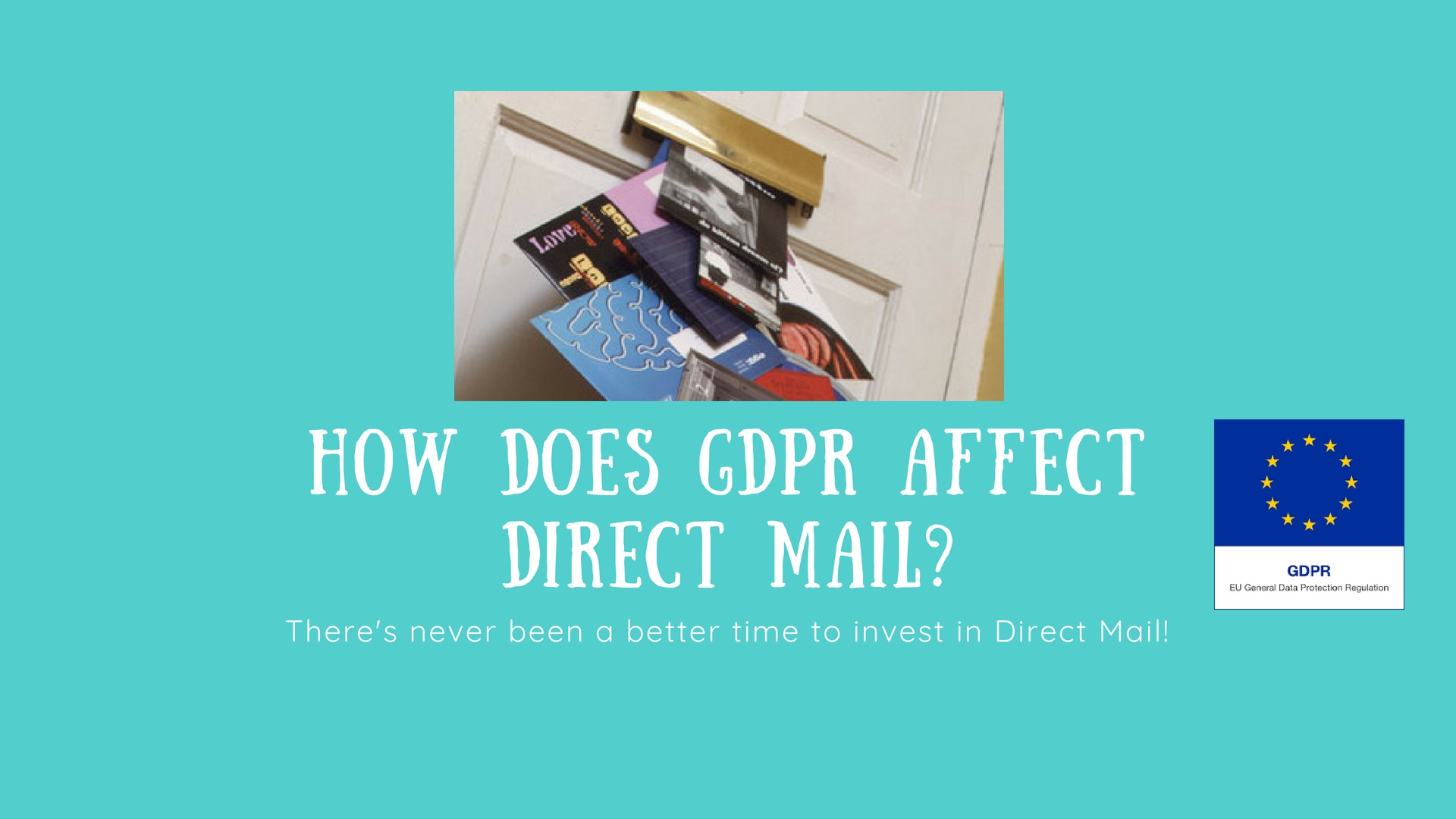Did you know you can send direct mail to your customers and you don’t need their explicit consent?
So unlike email marketing, with physical mail you have greater freedom to connect, engage and sell.
Of course, GDPR does effect this offline touchpoint. While recipient opt-ins aren’t compulsory, gaining legitimate interest is.
We discuss exactly what that means for businesses sending direct mail.
Learn how to remain GDPR compliant so you can advertise through post with confidence.
The Art of Mail Marketing Is Far From Dead
Sending marketing material by post is on the rise. The DMA has reported a 43% increase in customer responses to direct mail.
What’s more, on average, people keep their post for 38 days. To put this in perspective, 51% of emails are deleted within two seconds.
There’s no denying it. Direct mail is a powerful, meaningful and a dependable way to turn customers heads and leave a lasting impression. But is every letter that lands on a person’s doorstep wanted? This is where GDPR comes into play.
GDPR: The Specifics
Replacing the Data Protection Act 1998, GDPR is beneficial for both the business and the customer. It came into effect in May with one definitive aim: to balance the interest of the data controllers and the data subjects.
Data controller = the business processing personal data (email addresses, location, names etc)
Data subject = the individual whose data is being processed
To ensure businesses can lawfully handle personal data and use it for marketing purposes they have to abide by GDPR rules.
For example, to collect a subject’s email address and send them monthly e-newsletters the recipient must have opted-in. If they didn’t select ‘receive monthly updates’ but get them anyway, the sender is breaking the law and could face fines of up to 4% of their annual turnover.
Opt-ins usually appear as forms: when a customer registers on a site they will choose:
- How they want you to store and process their details (send to third-parties for marketing purposes etc)
- What type of information they want to receive from the business (updates regarding their purchases etc)
The big question for marketeers and business owners: do you need explicit consent (opt-ins) from the recipient to send them paper marketing?
The answer short answer: no. Here’s the long answer…
Sending Direct Mail on the Grounds of Legitimate Interest
In case you don’t already know, legitimate interest is a term coined by the Information Commissioner’s Office (ICO) that offers greater flexibility for customer data processing.
Businesses that send direct mail can do so on the basis of legitimate interest. They do not need to record consent from the recipient.
What you do need to ensure is this:
- That the use of data is valid
- Direct mail has a minimal impact on privacy
- Is expected by the recipient or they won’t be surprised to receive it
Let’s say a customer purchases a product from you online. Does that signal legitimate interest in your business?
Absolutely. They’ve actively engaged with your products and wouldn’t be shocked to see your catalogue on their doorstep. Additionally, if a customer has previously opted-in to your marketing emails, you can send them direct mail on the basis that they’ve proven their interest.
Find out more about programmatic mail
Your Responsibilities to Remain Compliant
Legitimate interest has some great benefits for businesses who use Mailing Services to reach their audience. With consent, subscribers can opt-out at any time. With legitimate interest, you aren’t subject to the whim of the customer with greater control and security over who gets your mail.
Taking away the need for obtaining consent means customers aren’t responsible for the use of their data: you are. So it’s your job to show how your interests are balanced with that of the individual.
You gain greater flexibility: this policy is applicable to a plethora of situations. But this ambiguity can lead to risks. With so many possible scenarios balancing interests can become tricky leaving you vulnerable to disagreements.
Protecting your business from GDPR disputes starts with owning your responsibilities. Your goals are to:
- Justify the grounds of legitimate interest between you and your customers
- Explain the purpose of processing and using personal data
- Demonstrate the necessity for data processing
One of the easiest ways to achieve these goals is through a privacy policy. You’ll probably already have a one but it might need updating to include:
- Your contact and company details
- The way you store candidate information
- How long you intend on storing the data
- What rights a candidate has over their data
- How a candidate can request to delete their data
ICO legislation states that this information must be easily accessible.
Some businesses prefer to rely on consent rather than legitimate interest. Simply because it’s more clear-cut: you either have a person’s permission to send them mail or you don’t.
Of course, this can restrict your direct mail marketing efforts. To maximise your reach, legitimate interest is the best course of action.
Comply to GDPR with our Direct Mail Marketing Services
Outsourcing your direct mail solves some big problems – namely ensuring you stay GDPR complaint.
First Move’s Mailing Services operates under strict legislation policies. From data capture, storing information and distributing direct mail campaigns, GDPR compliance is ensured every step of the way.




